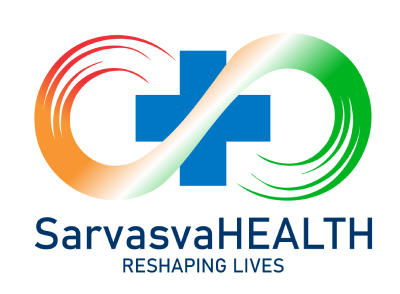Congenital disorders, also known as birth defects, are conditions that are present at birth and affect the structure or function of various parts of the body. These disorders can occur due to genetic factors, environmental influences, or a combination of both. Congenital disorders can range from mild to severe, and their impact on an individual’s health and development can vary.
Congenital disorders can affect any part of the body, including organs, limbs, the nervous system, or facial structures. They can result in abnormalities in growth, development, metabolism, or bodily functions. Some common examples of congenital disorders include Down syndrome, cleft lip and palate, congenital heart defects, spina bifida, and cystic fibrosis.
The causes of congenital disorders can vary. Some are caused by genetic mutations or chromosomal abnormalities inherited from parents, while others may be influenced by environmental factors such as exposure to certain drugs, infections, or toxins during pregnancy. In many cases, the exact cause of a congenital disorder is unknown.
The symptoms and severity of congenital disorders can also vary widely. Some disorders may have visible physical characteristics, such as distinctive facial features or limb abnormalities, while others may affect internal organs or systems without obvious external signs. Congenital disorders can impact physical health, cognitive development, sensory abilities, and overall quality of life.
The treatment and management of congenital disorders depend on the specific condition and its impact on the individual. Treatment options may include surgical interventions, medications, therapies, assistive devices, and supportive care. Early diagnosis, intervention, and ongoing medical and therapeutic support are crucial in optimizing outcomes and improving the well-being of individuals with congenital disorders.
It is important to note that many congenital disorders are not preventable, but certain measures can help reduce the risk of some congenital disorders. These include prenatal care, genetic counseling, vaccination, and lifestyle choices such as avoiding alcohol, smoking, and exposure to harmful substances during pregnancy.
Some of the common congenital disorders are as follows:
- Down syndrome:
Cause: Down syndrome is usually caused by an extra copy of chromosome 21.
Symptoms: Intellectual disabilities, characteristic facial features, low muscle tone, heart defects, and digestive issues.
Treatment: There is no cure for Down syndrome, but various therapies, educational support, and medical interventions can help manage the associated health conditions and improve quality of life. - Cleft lip and palate:
Cause: The exact cause is unknown, but it can involve genetic and environmental factors.
Symptoms: A split or opening in the upper lip or roof of the mouth, which can vary in severity.
Treatment: Surgical repair is typically required to close the cleft lip and/or palate. Speech therapy and dental care may also be necessary. - Congenital heart defects:
Cause: A combination of genetic and environmental factors, although the exact causes are often unknown.
Symptoms: Vary depending on the specific defect but may include abnormal heart rhythms, breathing difficulties, poor feeding, and bluish skin.
Treatment: Treatment options range from medication and monitoring to surgical repair, catheter-based procedures, or heart transplantation, depending on the severity and type of defect. - Spina bifida:
Cause: Incomplete closing of the neural tube during fetal development.
Symptoms: Vary depending on the severity and location of the defect but can include physical disabilities, problems with bladder and bowel control, and issues with leg movement.
Treatment: Treatment often involves surgical repair shortly after birth. Ongoing management includes physical therapy, assistive devices, and medications to manage symptoms and complications. - Cystic fibrosis:
Cause: Caused by mutations in the CFTR gene, which affects the production of a protein involved in the balance of salt and water in the body.
Symptoms: Thick, sticky mucus that affects the lungs, digestive system, and other organs. Symptoms may include respiratory infections, digestive issues, poor growth, and infertility. - Treatment: There is no cure for cystic fibrosis, but treatment focuses on managing symptoms and complications. This includes medications, respiratory therapies, nutritional support, and regular monitoring.
It’s important to note that this is not an exhaustive list of congenital disorders, and each condition can vary in severity and presentation. It’s crucial to consult with healthcare professionals for accurate diagnosis, individualized treatment plans, and ongoing management of congenital disorders.
Congenital disorders clinic:
We provide the best healthcare facilities for Parathyroid Cancer patients. Our multispeciality clinics are situated in the following locations:
Our Main Centre for Congenital Disorder Treatment in Dadar, Mumbai
Our Centres for Congenital Disorder Treatment
One can visit any of our branches that are nearby to your location for the best overall healthcare treatment of Congenital disorders. Our experts not only provide superior quality care using the latest technologies but also provide complete treatment along with rehabilitation facilities and post-operative care.

